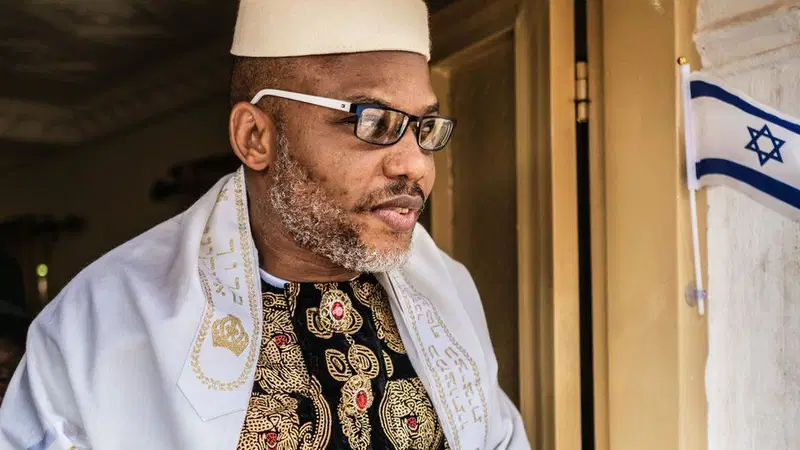The leader of the Indigenous People of Biafra (IPOB), Mazi Nnamdi Kanu, was sentenced to life imprisonment on terrorism charges by the Federal High Court in Abuja last week. The judgment, delivered by Justice James Omotosho, ended a decade‑long legal saga that has seen multiple arrests, a controversial extradition from Kenya, repeated courtroom walk‑outs and intense political debate.
In a letter to Nigerians, Kanu accused the federal government and the judiciary of “serial executive and judicial fraud.” He highlighted several rulings that, in his view, demonstrate a pattern of bias:
called his extraordinary rendition and detention unconstitutional and ordered an apology and compensation.
warned courts not to ignore executive lawlessness and said any court in Nigeria was “divested of jurisdiction” to try him after his forcible abduction.
sent the case back to the Federal High Court for trial and criticized the revocation of his bail as “significant and unacceptable bias.”
Kanu said that despite these rulings, the government continued to detain him, alleging that judges and officials colluded to keep him in custody. He announced that he would no longer appear before any judge whose authority he considered unconstitutional.
Wale Edun, SAN Defended the trial as a fair process. He noted that the judge gave Kanu ample opportunity to present a defence, even offering legal‑aid counsel, which Kanu declined. Edun argued that the conviction was a lawful application of the Terrorism Act and urged the government to consider a pardon as part of national reconciliation.
Victor Opara, SAN Adopted a middle stance. He questioned Kanu’s decision to dismiss his legal team and represent himself, especially in a capital‑offence case where the law requires representation. Opara suggested that the judge should have appointed counsel under the Administration of Criminal Justice Act. He said the appeal’s success would depend on the specific grounds raised.
Evans Ufeli, human‑rights lawyer Offered the strongest criticism, calling the conviction “legally defective.” He argued that the Terrorism Act under which Kanu was charged may have been repealed, that no weapon or direct evidence linked him to violence, and that the court ignored a jurisdictional objection. Ufeli said the judgment should be set aside or remitted for a fresh trial.
Gbenga Ojo, public‑law expert Viewed the sentence as a “policy judgment—compromised but necessary.” He said a life term, rather than the death penalty, reflected a political compromise aimed at preventing a dangerous precedent while keeping the option of a future pardon open. Ojo supported a firm judicial response coupled with political reconciliation.
Implications
Kanu’s claims of collusion raise questions about the ability of the courts to act free from executive pressure, especially in high‑profile security cases.
The requirement that defendants facing life imprisonment be represented is a safeguard that, if breached, could render a conviction vulnerable on appeal.
While the government argues that the sentence serves to deter separatist violence, critics warn that a flawed conviction may undermine public confidence in the justice system.
Several lawyers, including Edun, have called on the Prerogative of Mercy Committee to consider a pardon as part of a broader push for reconciliation.
Kanu’s legal team has indicated they will appeal the judgment. The Court of Appeal will have to decide whether the trial was procedurally sound and whether the Terrorism Act was applicable at the time of the alleged offences. Until then, the case remains a flashpoint in Nigeria’s ongoing struggle between maintaining security and upholding the rule of law.